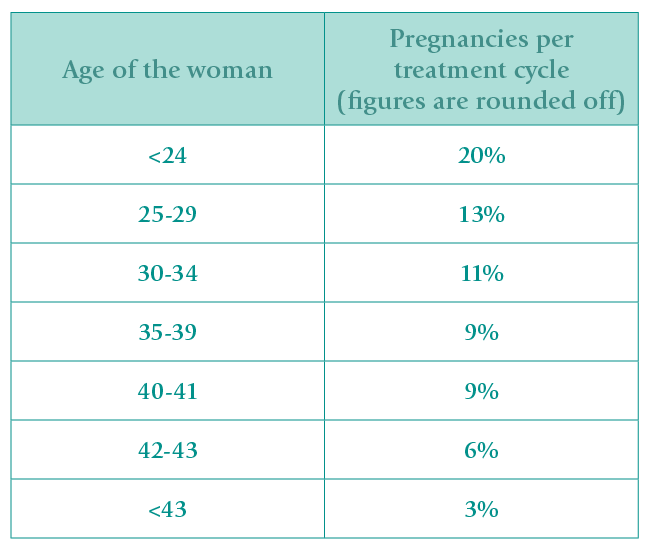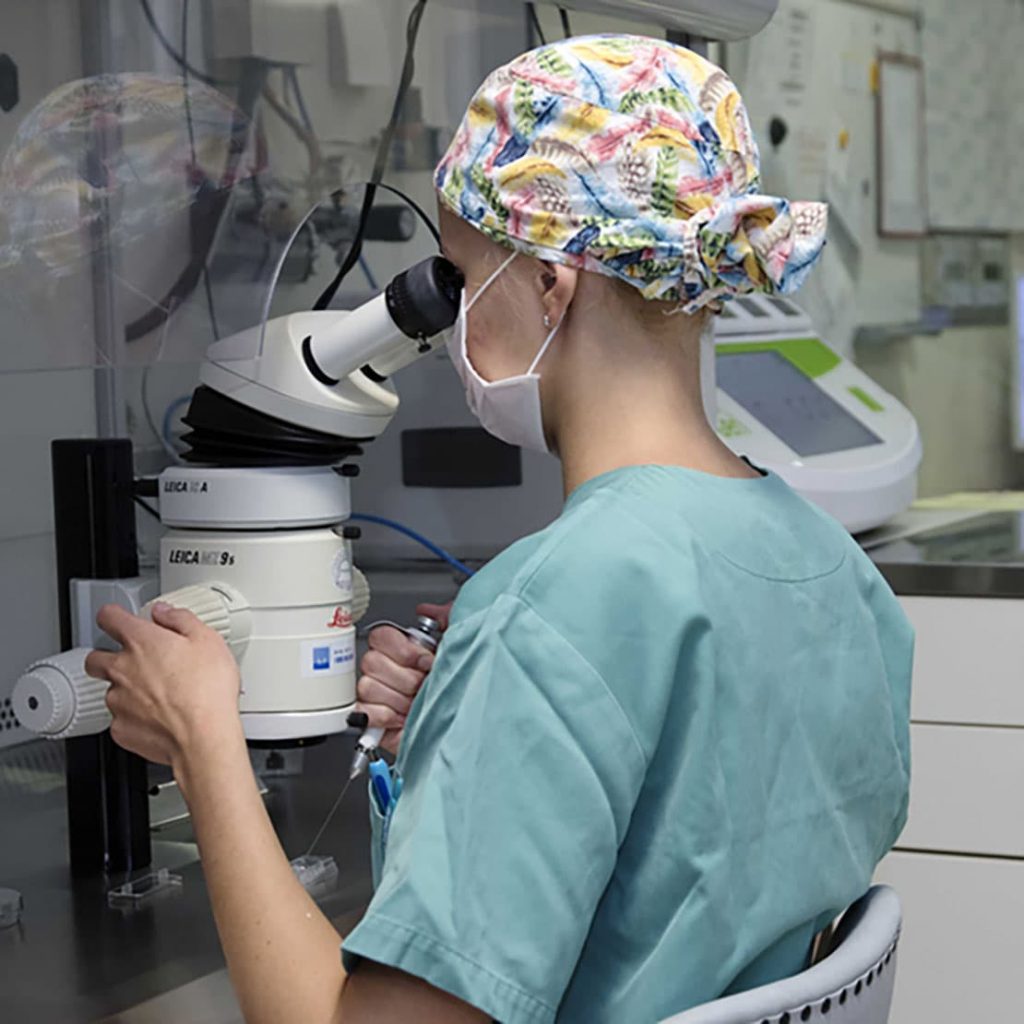In the case of intrauterine insemination (IUI), spermatozoa are injected directly into the uterine cavity with the aid of a fine catheter during the most fertile phase of the menstrual cycle. This procedure ensures that the spermatozoa are closer to the maturing eggs, facilitating the process of fertilisation. Either the partner’s semen (homologous insemination) or that of a donor (heterologous insemination) can be used.
The Kinderwunsch Institut maintains its own sperm bank containing spermatozoa of donors selected on the basis of strict criteria who are examined to exclude the possibility that they may have transmissible diseases.
When is IUI an option for me?
Among other situations, IUI is an option if the examination of the male partner's sperm shows that his count of functioning spermatozoa is too low - it is, of course, also an option for lesbian couples who can decide to use donated sperm.
This is also a relatively easy way for couples to have a child who are, because of disabilities or other problems, unable to have intercourse with each other. The sperm is first processed in our laboratory to ensure that only spermatozoa of optimal quality are left - a process that otherwise occurs naturally in the female body.
A detailed examination may also first be necessary to determine whether stimulation of the ovaries using drugs is required. For women without impaired fertility this is normally not needed.

